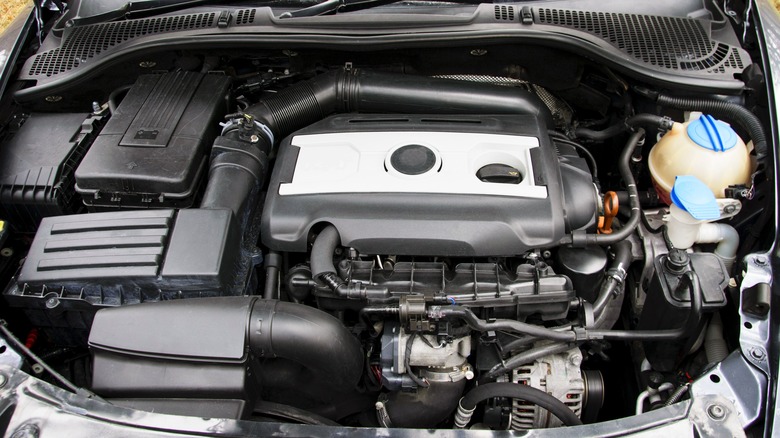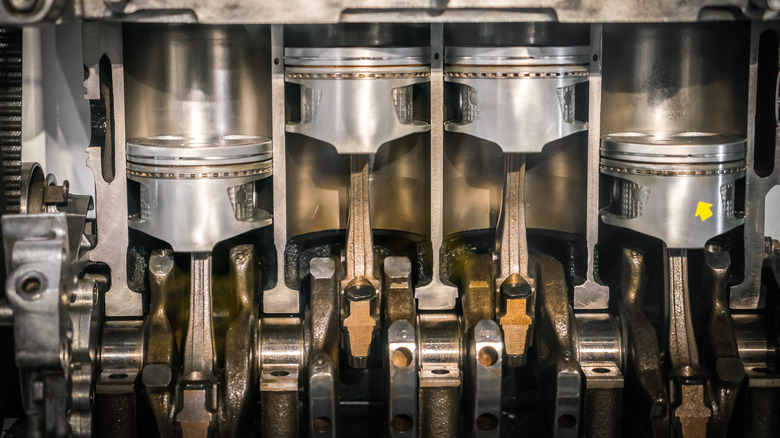In comparison with older days, fuel costs have not precisely been sort over the previous couple of years, and with continued instability across the oil-producing components of the world, it could not get a lot better anytime quickly. Given how costly the stuff has already gotten, premium fuel particularly looks like a serious buy each time you go to the pump. Do you actually need it? May you simply skip it and go for a budget (nicely, comparatively) gasoline?
As traditional, it relies upon. Each automobile will listing what octane it requires, both on the filler cap or within the proprietor’s handbook. If yours solely wants 87 octane, going for premium grades will not allow you to any. The truth is, even when increased grades are really useful (we’re not speaking required right here), you may most likely be nice with the cheaper stuff. Moreover, you’ll be able to normally skip the lesser-used mid-grade gasoline – that’s, except you reside in a high-altitude state like Colorado and mid-grade is your 87 octane.
However what concerning the vehicles that do declare you might be required to shell out for increased octanes? Is that basically mandatory? Sadly to your pockets, the reply is sure. Your entire level of high-octane fuel is that it reduces knocking, which in any other case may significantly injury the engine.
What’s engine knocking?
Possibly it isn’t appreciated sufficient, however a automobile engine is principally an explosion machine. A combination of air and gasoline is pumped right into a cylinder, the spark plug creates an ignition, and the ensuing increase makes the automobile go vroom. It is a very delicate operation, so if one thing goes incorrect and explosions begin taking place that the engine is not designed for, it isn’t excellent news.
Knocking signifies that explosions are erupting within the cylinder even earlier than the spark plug fires; in different phrases, forces are being unleashed in a timing that the engine is not meant for. This could occur in engines with excessive compression ratios, the place pressures and hyperlocalized temperatures get increased. To counterbalance this drawback, increased octane fuels are used, that are much less prone to spontaneously combust.
At its worst, knocking could cause critical injury to the engine, which is likely one of the most necessary and costly components to your automobile. Numerous knocking over an prolonged interval will nearly actually result in main issues. So in high-compression engines, it is actually crucial to ensure you’re placing in high-octane gasoline, which ought to eradicate the issue altogether.
Compression ratios in short
What precisely is a compression ratio? This could get technical, however basically, it is a means of measuring how far into the cylinder the piston truly travels; the farther in it is designed to go, the upper the compression ratio. Roughly talking, a better compression ratio will get the piston (and, thus, the engine) to do extra stuff per quantity of gasoline used, main to raised efficiency and gasoline effectivity.
That sounds nice, however as talked about earlier than, this makes for a extra unstable system. Increased octane fuels are a method of fixing for this, however one other is to easily engineer for a decrease compression ratio, which makes knocking much less seemingly anyway. If you will get good horsepower and gasoline effectivity in one other means — like, say, a turbocharger — then you definately’re good to go, and decrease octane fuels can be utilized. That is why the huge bulk of vehicles on the street solely want 87 octane and will not see any positives from utilizing something increased.
To comply with that thought by means of: Increased octane is not higher for efficiency, it is merely extra secure. So, placing it right into a low compression engine would not make it go any sooner.



